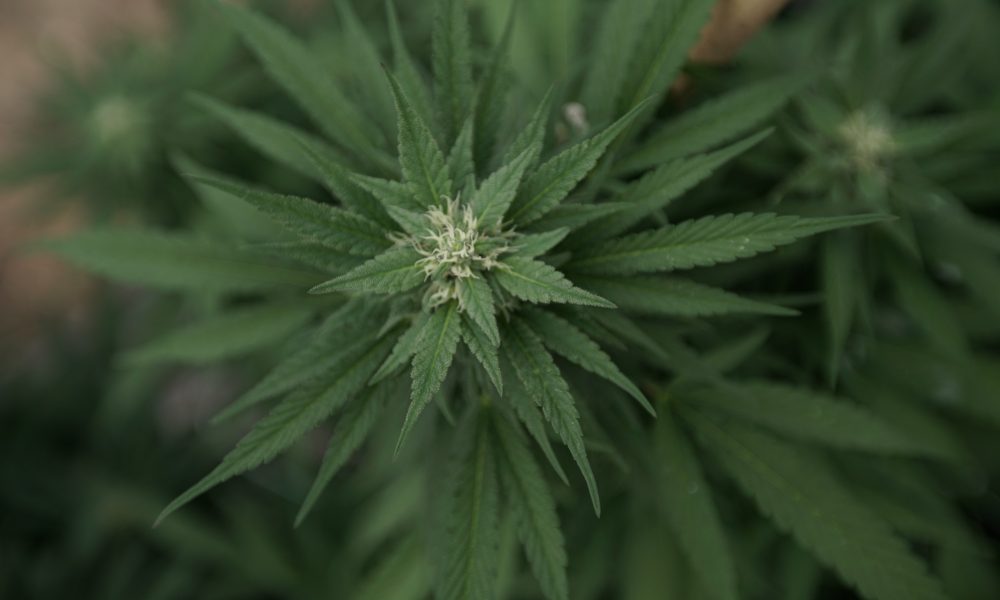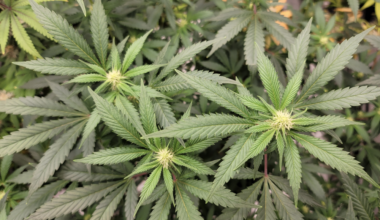A key House committee on Wednesday approved two amendments to a must-pass defense spending bill that deal with marijuana- related issues in the armed services.
Both measures cleared the House Armed Services Committee on voice votes during a markup of the National Defense Authorization Act (NDAA).
The first, from Rep. Anthony Brown (D-MD), concerns cannabis sentencing standards under military code. The other from, Rep. Seth Moulton (D-MA), calls for a Department of Defense (DOD)-led study into the medical efficacy of cannabis over opioids for certain conditions.
Brown’s proposal would mandate that the Military Justice Review Panel “develop recommendations specifying appropriate sentencing ranges for offenses involving the use and possession of marijuana” under military code.
The panel’s recommendations would need to include a comparative analysis on sentencing standards for cannabis-based offenses versus other “comparable offenses, such as offenses involving the misuse of alcohol.” They would also need to take into account the “overall burden on the military justice system on the current approach of the Department of Defense to sentencing marijuana-based offenses.”
A report with recommendations from the panel would need to be submitted to the House and Senate Armed Services Committees within 180 days of the measure’s enactment.
“As states around the country and the House take steps to reform our approach to cannabis, we need to ensure the military justice system reflects those changes,” Brown said in a press release. “Today, cannabis-related offices are treated harshly in comparison with other comparable offenses.”
“My amendment doesn’t change current law, but what it does do is require our armed services to review and provide recommendations for potential reform,” he said. “This is an important step in our efforts to ensure our military justice system is providing fair treatment to every service member.”
ADOPTED (voice): Amendment # 1808 — Rep. Brown — Chairman’s Mark
— House Armed Services Democrats (@HASCDemocrats) June 23, 2022
In April, Brown filed a related, standalone bill that would make it so the punishment for military service members who use or possess marijuana could not exceed penalties for being drunk or incapacitated on duty. In general, the congressman’s Restoring Equity For Offenses Related to Marijuana (REFORM) Act would amend the Uniform Code of Military Justice (UCMJ) to more closely align cannabis- and alcohol- related penalties.
He separately worked to get report language attached to last year’s version of NDAA that voiced concerns about racial disparities in military drug testing practices and ordered the Pentagon to conduct a review of the issue.
—
Marijuana Moment is tracking more than 1,500 cannabis, psychedelics and drug policy bills in state legislatures and Congress this year. Patreon supporters pledging at least $25/month get access to our interactive maps, charts and hearing calendar so they don’t miss any developments.![]()
Learn more about our marijuana bill tracker and become a supporter on Patreon to get access.
—
In 2019, DOD announced a policy barring all active and reserve service members from using hemp products, including CBD. DOD more broadly reaffirmed that CBD is off limits to service members in earlier notices published in 2020.
Moulton’s amendment, meanwhile, would require the secretary of defense to “conduct a study on the use of medicinal cannabis as an alternative to prescription opioids in the treatment of members of the Armed Forces on terminal leave preceding separation, retirement, or release from active duty.”
Participants in the study would include people who have been diagnosed with post-traumatic stress disorder, a traumatic brain injury, or any other condition involving serve pain.” The amendment further states that, in order to be selected to participate, military members would have been otherwise prescribed opioid pain medication for their conditions.
Upon completion of the study, the secretary of defense would need to “monitor the effects…on the health of former participants by conducting assessments of such former participants.” The official would additionally need to submit reports to congressional defense committees on the study at the one-year mark following its completion and also three years after it concludes.
The reports to Congress must include “a description of any such findings relating to the benefits or other effects of using medicinal cannabis as an alternative to prescription opioids” and any relevant recommendations based on the findings.
Moulton’s amendment also requires the Department of Defense (DOD) to “carry out an education initiative regarding the use of medicinal cannabis” in the treatment of the aforementioned conditions. The secretary would be required to take into consideration the “specific vulnerability to opioid abuse and substance abuse disorder of individuals transitioning from serving on active duty in the Armed Forces” and “best practices for reducing the stigmatization of medicinal cannabis.”
ADOPTED (voice) Amendment # 1994r1 — Rep. Moulton — Chairman’s Mark
— House Armed Services Democrats (@HASCDemocrats) June 23, 2022
In March, Moulton filed a standalone bill that would make it so military veterans would be “encouraged” to discuss medical marijuana treatment without the fear of losing federal benefits.
The main thrust of that legislation is to codify existing policies that allow VA doctors to talk about medical cannabis with patients as well as protections for veterans who are candid about their history with marijuana treatment. By doing so, it would enshrine these polices into law so that they could not later be changed administratively by future VA leaders.
The congressman has played an active role in introducing veteran- and cannabis-specific legislation in past sessions. In 2019, for example, he filed three House bills concerning medical marijuana for military veterans.
Both of the newly approved amendments to NDAA will still need to advance through both chambers of Congress before potentially being transmitted to the president’s desk.
Some advocates had held out hope that NDAA would be the legislative vehicle to enact bipartisan marijuana banking reform last year after the House attached the reform to the bill as a floor amendment, but it was later taken out in negotiations with the Senate.
Now, after it was announced on Wednesday that cannabis banking will not be enacted as part of the separate large-scale manufacturing bill known as the America COMPETES Act, some lawmakers and advocates are beginning to suggest that this year’s NDAA could be another vehicle to attach the reform to. It remains to be seen whether that will happen when the bill gets to the House floor and, if so, how the Senate will react this time.
Read the text of the committee-approved cannabis amendments below:
Photo courtesy of Chris Wallis/Side Pocket Images.
Medical Disclaimer:
The information provided in these blog posts is intended for general informational and educational purposes only. It is not a substitute for professional medical advice, diagnosis, or treatment. Always seek the advice of your physician or other qualified healthcare provider with any questions you may have regarding a medical condition. The use of any information provided in these blog posts is solely at your own risk. The authors and the website do not recommend or endorse any specific products, treatments, or procedures mentioned. Reliance on any information in these blog posts is solely at your own discretion.







